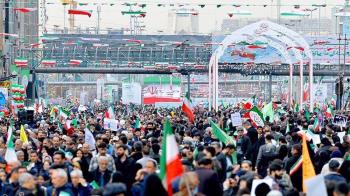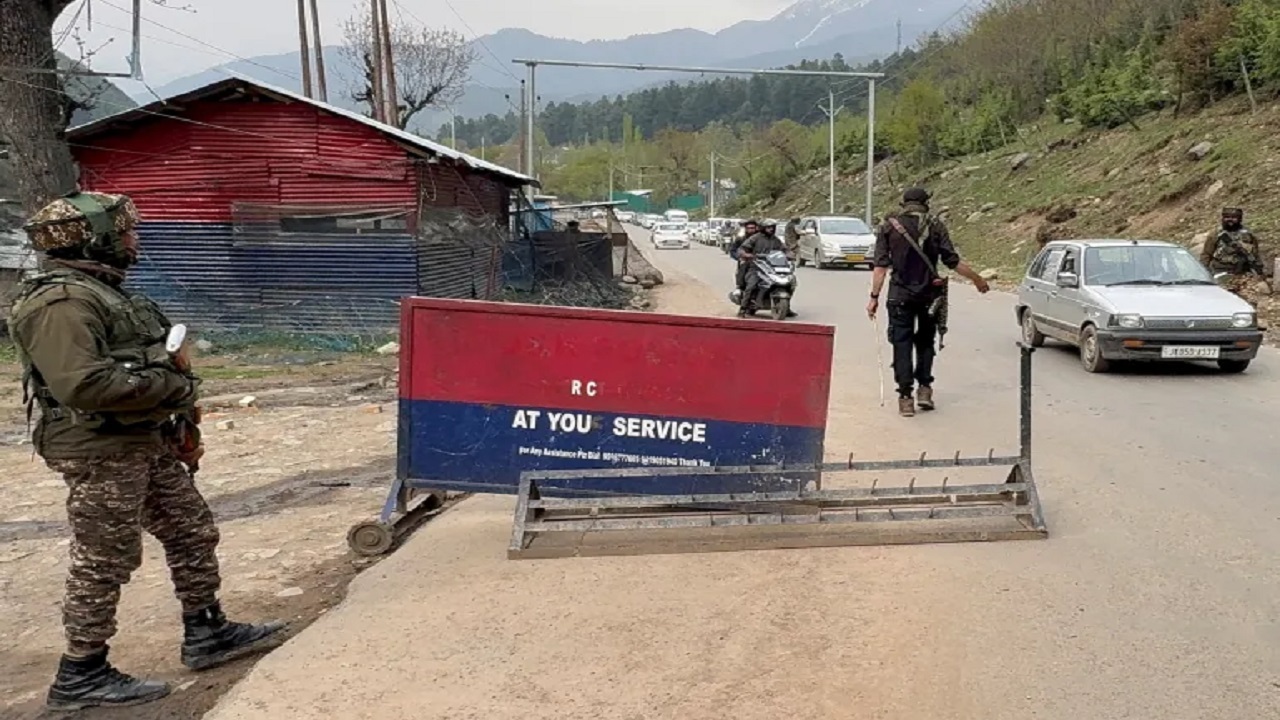Alwaght- The deadly terrorist attack in Kashmir on Tuesday that took 26 lives has inflamed a new wave of diplomatic, political, and economic tension between India and Pakistan.
The Indian government in a statement accused Islamabad of backing the armed assailants, and Indians who are taken aback and outraged by the attack have called for military action against neighboring Pakistan, something that could turn the incident into a full-scale crisis.
Reacting to the attack, Indian Prime Minister Narendra Modi said "we will hunt them down to the end of the Earth."
The Indian government announced that all visas issued to Pakistani nationals would be cancelled from Sunday and all Pakistanis in India were asked to leave the country before their visas expire. The country also announced other measures, including reducing the number of diplomats and closing the only functional land border between the two countries.
On the other hand, the Islamabad government did not remain silent and Pakistan's National Security Committee condemned India's hostile reactions. The committee said that while Pakistan remains committed to peace, it will never allow anyone to violate its sovereignty, security, dignity and inalienable rights.
Officials from both countries have indicated that the dispute could escalate to military action. "Any military action by India will be met with a similar response," Pakistan's foreign minister said.
Indian Defense Minister Rajnath Singh said, "Not only those who carried out the attack, but also those who conspired to commit this heinous act will be identified," and hinted at the possibility of military action.
Sindh River agreement of 1960
Beside diplomatic measures, India went farther to suspend one of the most sensitive treaties with Pakistan signed in 1960, officially known as Indus Water Treaty, a move inclined to push the Peninsula to an unprecedented crisis.
“We will make sure that not a single drop of Indus water reaches Pakistan,” India’s water sources minister said. India’s move to temporarily suspend the decades-old water treaty drew the strongest response from Islamabad, with the Pakistani government declaring that any such move would be an “act of war” and would respond with full national might.
The key water treaty, signed with mediation of the World Bank, defines how the waters of shared rivers (particularly the Indus and its tributaries) are shared between the two countries. Under it, India controls the eastern Ravi, Sutlej and Beas rivers. Pakistan controls the western Jhelum, Chenab and Indus rivers, which flow through the Kashmir region.
This agreement remained in place even in the midst of the 1965 and 1971 wars and the 1999 border skirmishes, and was considered one of the few bridges of communication between the two neighbors. However, with the escalation of tensions between the two countries, the prospects of this water agreement have been shrouded in uncertainty.
Pakistan heavily relies on Sindh river system. More than 75 percent of its agricultural water and 90 percent of its fresh water needs are supplied by the river. Any disruption to the natural flow of water could lead to a severe food, economic and social crisis in Pakistan. To this end, dozens of Pakistanis in some cities, including in front of the Indian High Commission in Islamabad, protested against the suspension of the water agreement and urged their government to respond.
The suspension of the agreement allows India to accelerate dam construction and water diversion projects. In the short term, there may not be a significant change in water flow, but in the long term, this policy could severely disrupt the water balance of the region.
Islamabad has long accused India of diverting water from upstream by building dams and embankments, a charge that India denies. Pakistan recently asked an impartial arbitrator to intervene in two Indian hydroelectric projects. India, in response, has accused Pakistan of prolonging the complaints process and has called for amendments to the treaty to address the delays. The office of Pakistani Prime Minister Shahbaz Sharif has said that no article in the treaty allows for unilateral suspension.
Due to the lack of sufficient water storage capacity, the suspension is not expected to have an immediate impact on water flows to Pakistan, but it is likely to destabilize Pakistan's agricultural sector.
Indian officials say New Delhi's decision means that they will no longer be obliged to share data on releasing water from the dams or warn about floods. Also, India will not be obliged to release a minimum amount of water during dry seasons.
“This agreement is the backbone of the country’s agriculture. This puts the future of our agriculture in a precarious position,” Ghasharib Shaukat, director of production at the Pakistan Agricultural Research Centre, told Reuters. “If the water flow goes irregular, the entire system will suffer, especially for crops that depend on irrigation, such as wheat, rice and sugarcane. Yields may decline, costs may increase, food prices may rise, and small farmers will suffer the most.”
Kashmir, an old wound
Since the independence of India and Pakistan in 1947, Kashmir has remained a contentious region between the two sides. In the same year, with its annexation to India by Maharaja Hari Singh while a majority of its population were Muslims, first India-Pakistan war began. In 1948, the UN adopted a resolution for referendum in Kashmir, but it was never implemented. For this reason, so far three wars have taken place between the two countries and the Line of Control has become the border of the two countries.
India and Pakistan each rule parts of Kashmir, but both claim the whole territory as their own. New Delhi has blamed all the unrest in Kashmir on Pakistan-backed "terrorism." Pakistan denies this, and many Muslim Kashmiris see the attackers as part of an internal freedom struggle.
The killings and the escalating tensions between India and Pakistan have unnerved Kashmiris. In a rare show of public anger, Kashmiris have taken to the streets to protest the killings. Markets, private schools and businesses were closed on Wednesday amid an cautious calm as people worried the terror attacks could scare away tourists and hit the region’s economy.
The recent terrorist incident in Kashmir has not only heightened security tensions but also increased the risk of long-standing disputes escalating into a full-scale conflict. If Pakistan sees India’s actions as a threat to its national security, it may retaliate. This could produce further border tensions and even a limited military conflict between the two nuclear powers, something that has deeply worried the international community.
In 2019, India launched a military strike on Pakistani soil in response to a suicide attack in Indian-controlled Kashmir that killed at least 40 paramilitary police. Given New Delhi’s harsh stance on the recent terrorist attack, some experts believe that India may go beyond diplomatic sanctions and take military action, as the media and officials from Modi’s ruling party are calling for military action.
Ashok Malik, the former advisor of policymaking at the Indian foreign ministry, said that New Delhi's response is a reflection of the extent of anger within the government and the Indian measures in relation to the water treaty will foist costs on Pakistan.
"India officials see military option feasible. Military strategists believe that under the shadow of nuclear capability, there is room for conventional military action. This room is not unlimited, but it is not insignificant either," he added.
The new water tension between India and Pakistan is more dangerous than the traditional border tensions, especially that water can transform the geopolitical competition to existential crises. Without immediate international mediation or return of the two countries to dialogue, risk of serious military confrontation and humanitarian crisis in South Asia can increase. Whereas chance of a full-scale war is slim due to their nuclear deterrence, continued tensions can lead to border clashes, economic crisis, and regional instability.



























